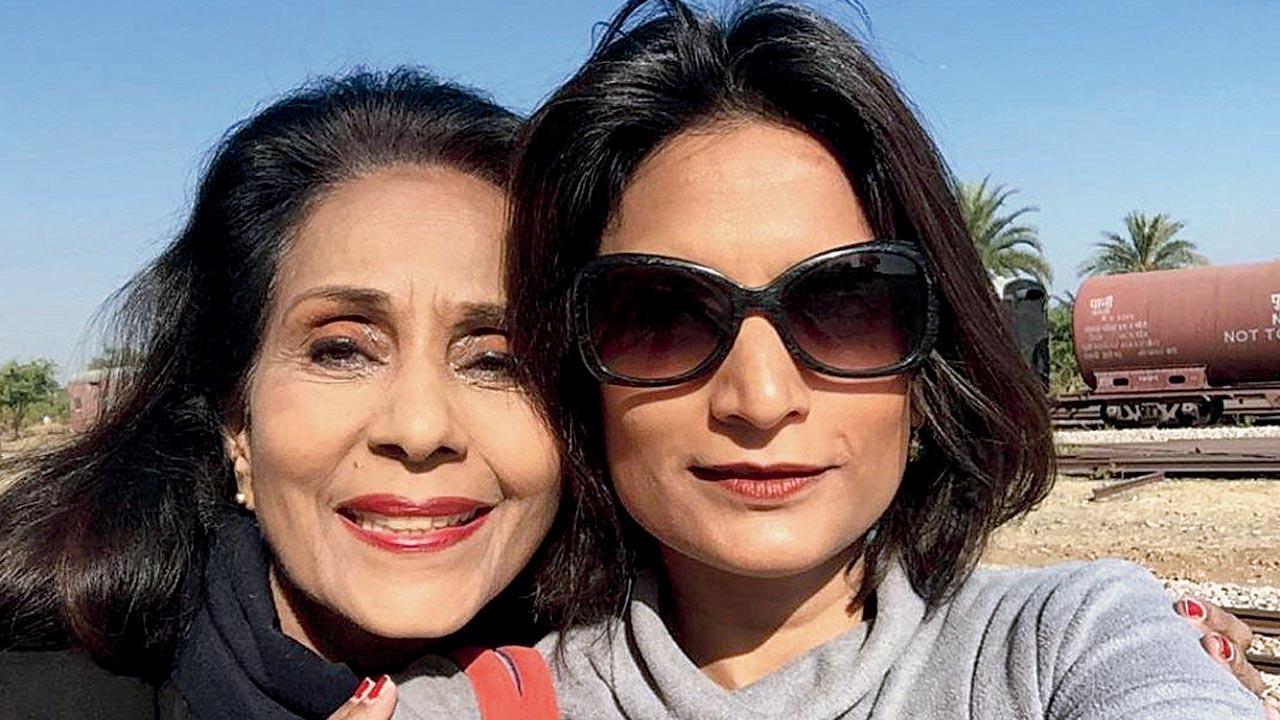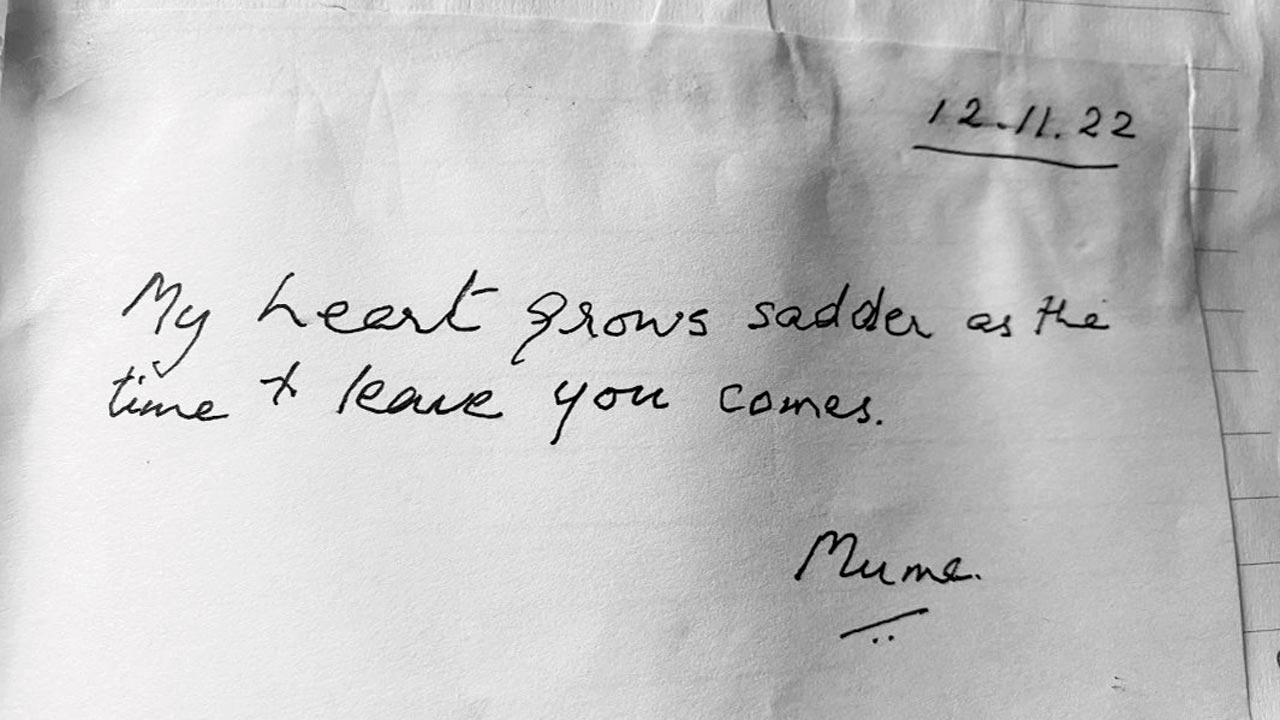She lost her mom and survived cancer all in the span of one year. Learning to grieve well is as important a life lesson as finding happiness, says author Pallavi Aiyar

Pallavi with her mother Gitanjali Aiyer in August 2018. while on a holiday in Kumbalgarh, Rajasthan
On the morning of June 7, the news of her mother’s death shocked her. She had spoken to her barely 12 hours ago, making vacation plans for August to celebrate the end of a year of cancer treatment for award-winning journalist and author Pallavi Aiyar. Her mother, renowned yesteryear Doordarshan English news anchor, Gitanjali Aiyar breathed her last in Delhi. The next few days were a blur. From funerals and last rites to finalising bank procedures, being surrounded by people and bereaving, Pallavi was only responding to what had come to her. A week later, when she was back home in Spain—where she now lives with her husband and two sons—she began to process what had just happened. “There is no easy way to lose a parent,” she tells Sunday mid-day over a phone call. “Whether it’s dementia or watching them wired to hospital tubes or something like this—sudden, without a warning—for me it felt like someone had sucked breath out of me. Nothing made sense. It felt unreal... like some distorted sounds came from far, far away. When I returned home and had this space to go back in time—to when I saw her last,” says Pallavi, who recently blogged about her experience of dealing with loss.
ADVERTISEMENT
In August 2022, Pallavi was diagnosed with breast cancer. “It hit my mother harder than it had hit me. It’s never quite easy for parents to see their children in pain. She didn’t have any acute problems, just chronic pains but COVID-19 had slowed her down. She wanted to come down before my surgery and I was glad that the kids would have someone at home while I was out of action. She arrived three days before the surgery—in a wheelchair, with a broken ankle from a fall she had three days before her flight. I was irritated because now there would have been two patients but she was my source of strength. I wanted her, quite an irrationality, to kiss and make it all better, which she couldn’t, for even mothers cannot banish cancer. She was also in pain herself, and frail, her stomach acting up, which made me guilty for not being well enough to look after her. Mothers and daughters and our tangle of love and guilt—it never ends,” says Pallavi.
 My heart grows sadder as the time to leave you comes: This note was one of many left by TV anchor Gayatri Aiyar for her daughter Pallavi, which she is now re-reading as part of her healing journey
My heart grows sadder as the time to leave you comes: This note was one of many left by TV anchor Gayatri Aiyar for her daughter Pallavi, which she is now re-reading as part of her healing journey
During that time, Gitanjali was reading a prosaic book on the technical/practical aspects of breast cancer—The Complete Guide to Breast Cancer by Professor Trisha Greenhalgh and Dr Liz O’Riordan. Pallavi had bought it to help her learn about things like the Nottingham Prognostic Index and HER2 receptor status. “Not your standard bedside reading, but my mother took it for hers. And amidst all the oncological acronyms, she found a section on tips to get through the early days of a diagnosis that included a suggestion to start a jar of joy,” says Pallavi.
The idea was for the cancer patient to write notes to herself every time she experienced a micro-joy (birds singing or a particularly tight hug from a child) and to put these in a jar. These could then be returned to when the patient felt low; “guaranteed to put a smile on even the most chemo-fatigued face,” says Pallavi. And from here, in the one month that Gitanjali spent in Spain, she and Pallavi’s younger son, 11-year-old Nico started writing and collecting notes in his school notebook. They called it the Book of Memories. Her older son, 14-year-old Ishaan, had put together wishes and notes sent to her and put them together for her to look at and it gave her strength in her weakest moments.
Back home after her mom’s death, Pallavi went back to rereading the book and saw it in a completely new light. “What she had written for me to cope with a mastectomy and lymphadenectomy, I now saw in a new light—as her goodbye messages, leaving behind something I will cherish forever. Each message still gives me goosebumps. I am not a spiritual person but this felt cosmic. Muma and I shared an unusually close relationship; however, being close also means that we tend to take the person for granted. It’s funny how we reserve our best behaviour for others, while our close ones get to see the unfiltered side of ours. My mother however was very patient with me, always loving and she would never hold it against me—instead, she would just absorb it all. I want to be that with my kids. The book for memories has reminded me that there are several small and important joys that we must cherish, every single day. Unfortunately, we realise it only after it has gone,” she signs off.
 Subscribe today by clicking the link and stay updated with the latest news!" Click here!
Subscribe today by clicking the link and stay updated with the latest news!" Click here!







